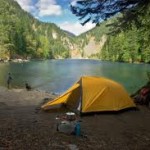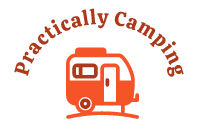
Here is a guest article written by avid outdoorsman and enthusiast Ted Levin…
Summer has arrived and people are eager to pitch their tents. Whether you’re a seasoned outdoorsman or a novice, each camper needs to take certain precautions before starting their trip.
Camping offers a wonderful individual, group, or family experience that cannot be replicated. It’s important to escape our daily lives that are flooded with the growing influence of technology and get back to basics with these 10 supplies and precautions you must take before beginning your trip.
1. Long Johns/Dry Fit Clothing
Pack the essential clothing for you and other campers (children) that can handle weather change. Despite what the weather report details, weather’s unpredictable nature can destroy your camping experience.
Don’t be afraid of long johns, dry fit clothing, plenty of socks, protective hats, and extra bright clothing. Friends tease me about my water repellent bright orange jacket, but it’s light, warm, breathable, and you can see me! Clothing that can be layered is very useful for adaptation to changing temperatures. Long sleeves also protect from insect bites and poisonous plant exposure.
2. First Aid
Check and update your first aid kit. Despite your optimism and camping experience, you can’t ever be too prepared for an unforeseen injury, accident or any medical related incident. This doesn’t mean simply restocking your bandages, gauze, hydrogen peroxide, slings (if necessary), bacitracin, or other supplies.
Staying clean and sanitary is must be a common theme for all campers. If you don’t have constant fresh water and soap, then pack plenty of hand sanitizer. Handling food cleanly will keep you healthy and safe.
3. Allergy Emergency Care
I pack an epi pen for emergency allergy situations. Just because you’re not allergic to bee stings doesn’t mean you won’t experience an allergic reaction. My sister suffered an extreme bee sting reaction that needed immediate treatment. An epi pen nipped this dire situation in the bud.
4. Duct Tape
Every camper should include 2-3 rolls of duct tape. If you can’t duct it, then forget about it. If all fails, duct tape won’t.
5. Check Expiration Dates
Sunscreen expires! With the summer season upon us, it’s important to wear sunscreen. Protecting your skin and staying hydrated is essential to prevent dehydration, sunburn, heat exhaustion, and heat stroke.
Canned food and dry goods don’t stay good forever. You’d be surprised when checking expiration dates.
6. Electronic Devices
Maintaining communication proves essential while camping. People often get lost.
Check your cell phone coverage in the camping region. You can do this easily online. Cell phones are important for emergency care and assistance.
Walkie talkies or two way radios with an extended 25-50 mile radius are musts for campers. Before leaving, check quality and distance capabilities. Often cheap two-way radios fall short of their description.
Pack whistles, flashlights (extra batteries or solar powered), and emergency flares. Lights and sounds scare off wild animals and signal your location if lost.
Make a check list of all tools and supplies that need to be checked for quality.
7. Vaccinations
You may not find this step necessary, but staying updated on your vaccinations may save you. It’s as simple as consulting your doctor. This step is absolutely essential when camping with children who are more susceptible to disease and illness.
8. Research Your Campground
Knowledge is power. There is no greater precaution to take than knowing your campground, the wildlife that surrounds it, and the potential weather you might encounter. Checking the weather report proves necessary, but pack for any occurrence.
It doesn’t take long to look up the present wildlife. Take the necessary steps to deter bear encounters. Keep food safely secured and hidden.
Knowing if snakes, reptiles, and other creatures call your campsite home is important for deterrence and prevention for snake or insect bites.
9. Check Tent Setup and Quality
You don’t have to sleep in your tents before heading out, but run through setting them up. This precaution will save you time on the mental lapses experienced at the camp sight.
Ensure every aspect of the tents is strong. There can’t be any loose ends or issues since tents provide the foundation of a stable sleeping base for campers. Three or four season tents can make the difference in the camping experience, especially when the cold creeps in overnight. Like clothing and supplies, tents should be easily adaptable, flexible, and portable.
10. Stage a Backyard PreCamp
Experienced campers shouldn’t take this step lightly. There’s no better way to prepare for a camping expedition or long weekend at the national park than to run through a practice or precamp day before leaving.
Lawyers practice their opening statements before the trial date. Athletes practice before the big games. Why not set aside one day before the trip to run through set up, break down, and any other essential steps that simulate the camping experience?
Even the seasoned outdoorsman needs practice to shake off the rust.
Ted Levin is a natural outdoorsman that enjoys sharing his camping knowledge and tips. You can connect with him on Twitter and Google+.

You must log in to post a comment.